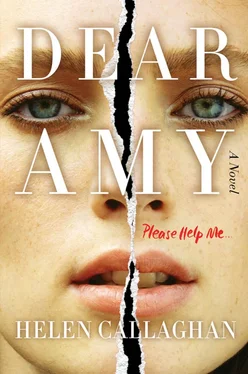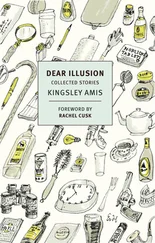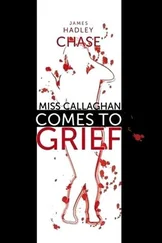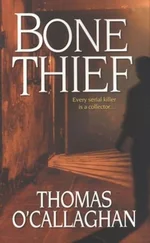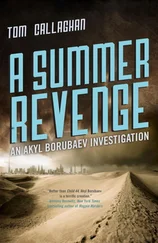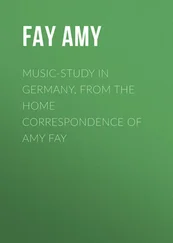I tried to come up with some sort of plan. My thoughts were slow and fuzzy. Perhaps the alarm system was switched off. Perhaps the red blinking box was all there was, a way to deter thieves. I was going to have to walk to Comberton on my numb feet.
But that was impossible. I had to get in there. Now .
I trudged from window to window, all resolutely veiled with damask or heavy cotton. The big ones at the front and sides were leaded in diamond patterns – I could never have broken in through them, so I circled round to the side, my feet crunching through virgin snow on the narrow path. Then there was a smaller window, and then another, but all had net or cheap polyester hanging over them, and I could see no lights in them. They looked like servants’ quarters.
I stared up at the sheer brick walls. There were a few other windows above, on different floors, but they were also unlit and peculiarly forbidding. This part of the house outcropped a little from the rest, so it had presumably been an extension from its antiquated foundations. And there appeared to be no one in it.
At least not yet.
My fingers were curling up into two little blue crabs, and my neck and cut shoulder ached keenly with the cold. I needed to break the glass in one of the smaller windows at the back, but how…?
The padlock and chain, from the gates.
I was running to the gates when the security lights blazed awake with an audible click from somewhere up on the wall, bathing me in white light. Just a motion sensor, but I nearly screamed with terror. The chain and padlock threaded out through the bolt, their shiny steel newness at odds with the ancient, nicked wrought iron.
Beyond the gates, in the darkness, something moved.
I paused, illuminated, on the drive, blinded by the lights, trying to see any approaching cars. There was nothing. But that didn’t mean there was nothing out there.
I ran back to the window and lashed out with the chain; the thin glass shattered into a thousand pieces with a musical tinkle, as though it had been waiting for this very opportunity.
In the back of my mind, I tensed for the shriek of the alarm. It didn’t come – perhaps it was a silent alarm, or merely there for show.
Or it’s been disabled in some way, I thought. Maybe whoever lives here can’t risk strangers or the police turning up every time some kid tries to break in.
Which implies he probably has something on hand to take care of problems of that sort himself.
No time to worry about that now.
I gathered up the slack of my blue cardigan in my stiff fingers and pressed its sodden mass to the broken edges, snapping them off so I could crawl in. The pieces fell on to the floor of the room, with a glissando crash. It was all I could do not to cut myself in my terror.
There was a bed in the room, which was small and poky, and a chest of drawers with a cheap mirror mounted above them. A half-open suitcase lay on the bed, full of a mix of men’s clothes, and a shoebox lay on top of them, the lid slightly open.
Inside were papers, a passport, two driving licenses, one for Tim Henry who lived in Barton and one for Christopher Meeks who lived in the village, and there was also an ID card for Chris Henry, a driver for North Cambridgeshire Social Services, which had expired eighteen months ago. All of these cards showed images of the same man, with sandy greying hair. Clothes lay everywhere, a flurry of packing halted and waiting to be resumed.
I sat down on the bed, burying my hands in the starchy coverlet. It was icy cold, but at least it was dry.
I smoothed the melted snow out of my hair. When I touched my cheek, my finger came away black with blood. The mirror opposite showed a series of fine scratches across my face.
Looped across one corner of the mirror stand was a little tarnished silver cross on a thin chain.
For some reason, despite the danger, the need for haste, my eye was caught by this detail, and kept being drawn back to it, as though by some enchantment…
How had this man found me? Oh, I’d been so stupid. While I’d been arguing with the police over exposing Bethan Avery in the paper with the appeal, I had really been exposing myself.
None of it mattered, though. I needed to find the source of that tapping, to quieten that terrible suspicion in me. I needed to find a phone, and without a moment’s delay.
Outside the door there was a smooth wooden corridor, with flat rugs laid on it, and at its end a big tiled and plastered space opened out. I waited for a few moments, merely breathing, listening – I guessed the corridor led into the kitchen. Perhaps there was a phone in there, and maybe some kind of weapon. I glided cautiously on to the rug, my feet making only the faintest of whispers against the coarse material.
I heard nothing, nothing except the sound of a big house from a bygone age, gloomy and neglected and falling into dust. The tapping had fallen silent.
Through the dusty, cavernous kitchen I moved, where the only thing that had the patina of use was a tiny ancient microwave, crusted with food stains, then through doors to a winding series of staircases with marble steps and steel banisters, the moon reaching down to me through a glass skylight. No sign of a phone still. I fought down my sense of panic.
The double doors ahead of me were shut, but I knew I was heading to the front of the house, and to the room with the big leaded windows near the drive, where I had first heard the tapping.
This was where the light had come from that had drawn me from the path. It limned the shut doors in a thin line of gold.
I threw them open.
I don’t know what did it to me where so many other things had failed, but the blue damask curtains, the black and white tiled floor with its thick, heavy blue rug, that velvet sofa – that fucking velvet sofa – filled me with a terror and rage so intense that I wanted to set light to it.
I knew, with the lightning ring of truth, that I had been very, very unhappy on that velvet sofa.
I remembered this room.
More to the point, I remembered what happened the last time I was in it.
It was early evening, and I was out of the cellar.
There had been, as there always has been, the cellar. I think even then I had become so damaged, so dissociated, as Martin might say, that I would have been hard-pressed to remember who I was; that I had once had a mother, Melissa; that my best friend was Natalie.
But some things I had not forgotten.
It was winter and I was always bitterly, bitterly cold, and I constantly thought I was going to die. But I had not died. I had stayed alive because my nanna was terribly hurt and in hospital. I had to get back to her. She was in trouble; in danger.
I had not been allowed out for a long time, and I was so weak I could barely stand up. I was injured – something in my chest hurt and I think one of my ribs was broken. I’d done something to make him angry, but I cannot remember what it was.
In any case, I wasn’t standing up. I was sitting, on that velvet couch.
He said his name was Alex, but I was sure this was a lie. He was skinny and middle-aged (or so I thought, though through the filter of my own experience I suspect he was no more than thirty-two or -three), had thin, sandy blond hair and didn’t often wash. That fusty, sweaty-sour smell is clearer to me than his face. I cannot remember his face very well – I hated looking at him so rarely did, and I took the cues for my own survival from his voice. It was whispery; borderline obsequious, but could change in a heartbeat to a full-throated furious bellowing, usually accompanied by his heavy, driving fists.
He told me that he had rescued me from the men that killed my mother – they were looking for me, too, and for my nanna. He told me he was rich and powerful, and that this was his house. I didn’t know whether I believed that, but I did believe that my nanna was in danger, and that somehow he knew what had happened to Melissa. I believed that he knew my teachers, and that some of them knew I was here, including Miss Costas. That he knew social services – how else had he got my details? – that he knew policemen – that was why nobody ever looked for me.
Читать дальше
